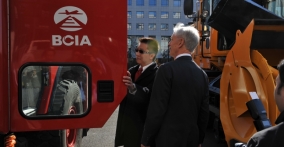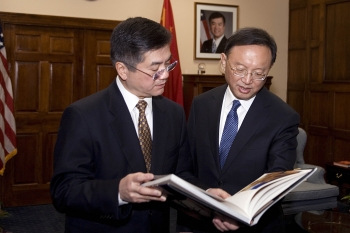U.S.-China Joint Commission on Commerce and Trade (JCCT) Concludes with Significant Agreements
This week marked the conclusion of the 22nd sssion of the U.S.-China Joint Commission on Commerce and Trade (JCCT) in Chengdu, China. U.S. Secretary of Commerce John Bryson and United States Trade Representative Ron Kirk co-chaired the JCCT along with Chinese Vice Premier Wang Qishan. The trip was highlighted by meaningful progress on key elements of the U.S.-China trade relationship, though much more work remains to be done to open China’s market to U.S. exports and investment.
The work done at JCCT will help boost U.S. exports and jobs through:
- the removal of important barriers related to electric vehicles,
- strengthened measures to eliminate discriminatory indigenous innovation policies,
- and stricter enforcement of intellectual property rights in China.
“Both sides worked hard to produce some meaningful progress that will help provide a needed boost to U.S. exports and jobs,” Secretary Bryson said. “This is a step in the right direction. But we must continue to actively engage our Chinese counterparts to open additional opportunities for U.S. businesses.”
Specifically, China agreed to make a significant systemic change in its enforcement of intellectual property rights. Through a high-level central government enforcement structure, China will make permanent its 2010 Special IPR Campaign. China will continue high-level involvement that will enhance its ability to crack down on intellectual property rights infringement. And in addition, China’s leadership committed to increased political accountability–the performance of provincial level officials will be measured based on enforcement of intellectual property rights in their regions.







